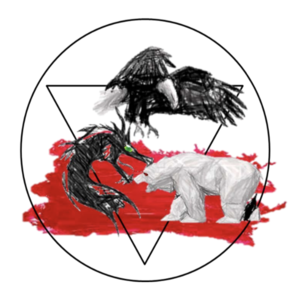Future of Global Competition & Conflict Conclusion of Effort Panel Discussion (Part 2 of 2)


“Future of Global Competition & Conflict Conclusion of Effort Panel Discussion (Part 2 of 2)“
Speakers: Bragg, B. (NSI, Inc.); Cooley, S. (Oklahoma State University); Elder, R. (George Mason University)
Date: 6 November 2019
Speaker Session Preview
SMA hosted a panel discussion as a part of its Future of Global Competition & Conflict Speaker Series. The panelists included Dr. Belinda Bragg (NSI, Inc.), Dr. Skye Cooley (Oklahoma State University), and Lt Gen (Ret) Dr. Bob Elder (George Mason University). Dr. Cooley first presented Oklahoma State University’s Media Ecology and Strategic Analysis (MESA) Group’s key takeaways from its comparative analysis of Chinese, Russian, Iranian, and Venezuelan media. These takeaways included: 1) the future of global competition is a battle for economic security, which is demonstrated through technological innovation, trade agreements, etc.; 2) US actions are leading to a leadership vacuum and growing uncertainty; and 3) informational and cultural strategies are being developed by China, Russia, Iran, and Venezuela in order to to mitigate US/Western influence. Dr. Cooley also presented the MESA Group’s findings specific to Chinese, Russian, Iranian, and Venezuelan media, respectively, as well as a series of potential challenges to US global influence and potential openings for the US to expand and maintain its influence. Next, Lt Gen (Ret) Elder discussed the George Mason University Team’s Timed Influence Net (TIN) model and its application to globally integrated operations planning. He first explained the TIN model’s framework and approach, followed by a discussion of Chinese, Russian, and US strategic goals. He explained that a challenge of globally integrated operations is coordinating global activities and messaging to promote US objectives and disrupt adversary objectives detrimental to the US and its global partners. Based on the TIN model’s results, Lt Gen Elder presented four key planning insights, including how identifying which US and competitor regional objectives are in conflict with one another can help highlight likely areas of competition that could develop into crises and can also be used to develop indicators and warnings for monitoring purposes. Lastly, Dr. Bragg discussed NSI’s global deep dive effort, which maps major power influence and activities. This global deep dive provides a systematic means of exploring China’s and Russia’s activities and interests at various levels of analysis– state, regional, and global. She explained that the deep dive also enables examination of how US, Chinese, and Russian interests and activities intersect to create the potential for cooperation, competition, or conflict. Dr. Bragg summarized the interests and activities data that NSI found for China and Russia, while also highlighting Chinese global activities, Chinese investment in infrastructure and resource extraction, and US and Russian leverage over countries of top importance to China.
Speaker Session Audio Recording
To access an audio file of the session, please email Ms. Nicole Omundson (nomundson@nsiteam.com).
Belinda Bragg
Dr. Belinda Bragg is a Principal Research Scientist for NSI, Inc. She has provided core support for DoD Joint Staff and STRATCOM Strategic Multi-layer Analysis (SMA) projects for the past six years. She has worked on projects dealing with nuclear deterrence, state stability, U.S.–China and U.S.-Russia relations, and VEOs. Dr. Bragg has extensive experience reviewing and building social science models and frameworks. She is one of the two designers of a stability model, (the StaM) that has been used analyze stability efforts in Afghanistan, state stability in Pakistan and Nigeria, and at the city-level to explore the drivers and buffers of instability in megacities, with a case study of Dhaka. Prior to joining NSI, Dr. Bragg was a visiting lecturer in International Relations at Texas A&M University in College Station. Her research focuses on decision- making, causes of conflict and political instability, and political uses of social media. Dr. Bragg earned her Ph.D. in political science from Texas A&M University, and her BA from the University of Melbourne, Australia.
Lt General Robert Elder, (USAF, Retired)
Lieutenant General Robert Elder (USAF, retired) joined the George MasonUniversity faculty as a research professor with the Volgenau School of Engineeringfollowing his retirement from military service as the Commander of 8th Air Forceand U.S. Strategic Command’s Global Strike Component. He currently conductsresearch in the areas of command and control, deterrence, escalation control,competition short of armed conflict, crisis management, and international actordecision-making. General Elder served as the Central Command Air ForcesDeputy Commander for Operation Enduring Freedom, Air Operations CenterCommander and Deputy Air Component Commander for Operation IraqiFreedom, and Commandant of the Air War College. He was the first commanderof Air Force Network Operations and led the development of the cyberspacemission for the Air Force. He received his Doctorate in Engineering from theUniversity of Detroit.
Skye Cooley
Skye Cooley (Ph.D., University of Alabama) is an assistant professor in the School of Media and Strategic Communications at Oklahoma State University. His research interests are in Russian political communication, global media and digital democracy, as well as civic deliberation online. Dr. Cooley holds certifications of accreditation in public relations (APR) and civilian service peace keeping operations (POTI). He has traveled actively through Europe, Latin America, Asia and Africa; publishing and presenting research on international political communication.
Robert Hinck
Robert Hinck (Ph.D., Texas A&M University) is Professor of Organizational Communication at Monmouth College. His program of research centers on organizational rhetoric, particularly regarding international and diplomatic rhetoric, public diplomacy, conflict and negotiation, as well as global media. His research projects address concerns regarding the formation and sustainment of political cooperation among distinct political communities, and the rhetorical means by which they structure and manage internal and external stakeholders.

